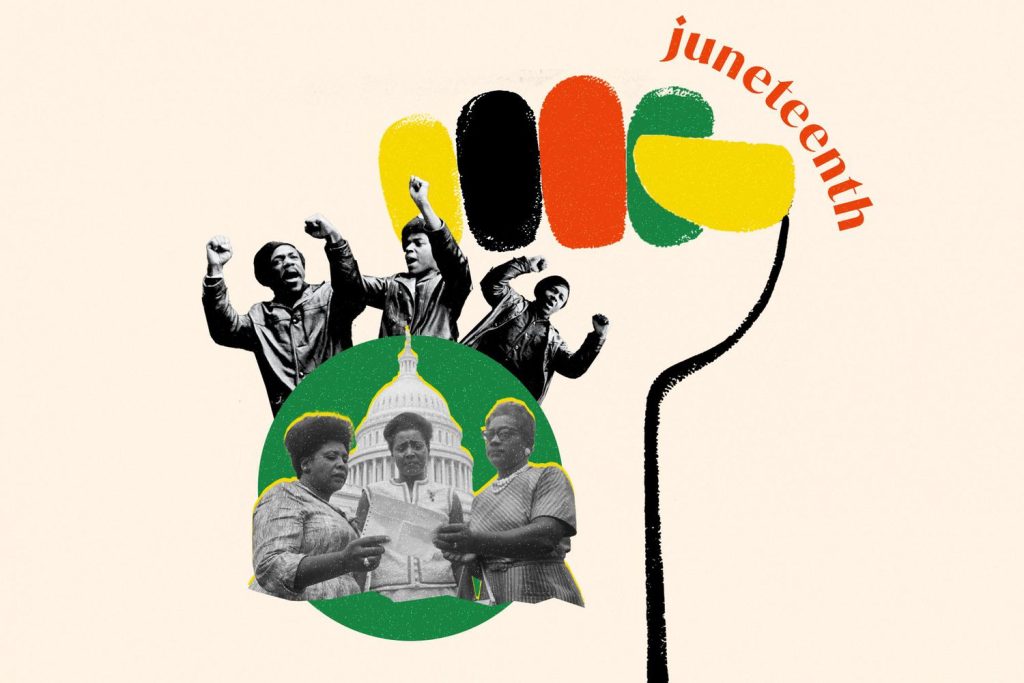Imagine stepping back into a pivotal moment in American history, where the air buzzes with the anticipation of change and the joy of newfound freedom. Juneteenth, also known as Freedom Day or Emancipation Day, marks such a moment. Picture the scene on June 19, 1865, in Galveston, Texas, when Union soldiers delivered the life-changing news to enslaved African Americans that they were finally free. This announcement came shockingly two years after President Abraham Lincoln's Emancipation Proclamation. Why did it take so long for the news to reach them, and what did this mean for their future? As we peel back the layers of history, we uncover a story of resilience, hope, and the enduring fight for equality. Juneteenth isn't just a date on the calendar; it's a celebration of freedom that echoes through time, reminding us of the long journey toward justice and the work that remains. Join us as we delve into the origins of this significant day, its impact on generations, and why it continues to resonate with people across the nation.
Key Takeaway
Timeline
Day Activities
-
Parades and Picnics: Juneteenth kicks off with vibrant parades that snake through city streets, a visual feast celebrating freedom with floats, marching bands, and dancers. Post-parade, families and friends gather in parks for picnics, grilling up a storm, and enjoying the summer sun. These gatherings are not just about good food and fun; they're a communal embrace of freedom and unity.
-
Educational Programs: On this day, communities often host educational events aimed at shedding light on the historical significance of Juneteenth. From storytelling sessions that narrate the tales of resilience and freedom to discussions led by historians and scholars, these programs serve as a bridge connecting generations to their past, ensuring the legacy and lessons of Juneteenth are passed down.
-
Reflection and Remembrance: Beyond the festivities, Juneteenth serves as a solemn time for reflection. Many take a moment to honor ancestors who suffered under the yoke of slavery, acknowledging their strength and sacrifice. Candlelight vigils and prayer services are common, offering spaces for contemplation on the journey from slavery to freedom, and the ongoing fight for equality.
Interesting Facts
1. Origin in Galveston
In 1865, Union soldiers announced slavery's end in Texas, marking Juneteenth's start.
2. Emancipation Proclamation's Delay
Took over two years for Texas slaves to learn they were free post-Emancipation Proclamation.
3. First Celebrations
Texas hosted the inaugural Juneteenth celebration in 1866, a tradition that continues today.
4. Spread Across States
As African Americans moved, they took Juneteenth celebrations nationwide, now recognized in 47 states.
5. Reflection and Education
Juneteenth serves as a day for reflecting on slavery's history and advocating for racial equality.
Why We Love This Day
- Celebration of Freedom and Equality
Juneteenth isn't just any day; it's a powerful reminder of the long journey toward freedom and equality. On this day, we celebrate the resilience and unbreakable spirit of those who fought for their rightful place in society. Imagine, after years of injustice, hearing the news that you're finally free. That's what happened on June 19, 1865, and why we honor this day. It's a testament to the strength of the human spirit and the enduring fight for justice.
- Cultural Significance and Unity
This day isn't only about looking back; it's a vibrant celebration of African American culture and unity. From mouth-watering barbecues to soul-stirring gospel music, Juneteenth brings folks together in a jubilant showcase of cultural pride. Communities come alive with parades, storytelling, and music, each element weaving a rich tapestry of heritage and hope. It's a day when everyone can learn from and enjoy the diverse traditions that make up the fabric of America.
- Education and Reflection
Juneteenth serves as a crucial educational tool, shedding light on parts of history that are often overlooked. It's a chance for folks of all ages to pause and reflect on the struggles and victories of African Americans. Through events and programs, we're reminded of the importance of understanding our past to build a more inclusive future. This day encourages conversations about racial equality and justice, inspiring the next generation to keep pushing for change.
Past & Future Dates
| Month | Day | Year |
|---|---|---|
| JUNE | 19 | 2022 |
| JUNE | 19 | 2023 |
| JUNE | 19 | 2024 |
| JUNE | 19 | 2025 |
| JUNE | 19 | 2026 |
| JUNE | 19 | 2027 |
| JUNE | 19 | 2028 |
FAQ
What is the true story behind Juneteenth?
Dating back to 1865, Juneteenth commemorates the day when 250,000 slaves in the state of Texas, which became the last bastion for slavery during the final days of the Civil War, were declared free by the U.S. Army.
Is Juneteenth a federal holiday for all states?
Zoom out: Juneteenth is commemorated in various ways, such as parades, festivals, and local events, across all 50 states, with over half formally designated as an official public holiday. Some state workers receive Juneteenth as a paid holiday or use it as a floating holiday.
Is June 19th a bank holiday?
June 19 is a Federal holiday – all banks, state and Federal buildings closed today. Juneteenth was made a National holiday in 2021. June 19 is the national holiday Juneteenth – which is a celebration of the ending of slavery in the US.
Is it okay to say "Happy Juneteenth"?
It's typical to wish people a “Happy Juneteenth” or “Happy Teenth," according to Alan Freeman, a comedian organizing a Juneteenth comedy festival in Galveston, Texas for the second straight year. “You know how at Christmas people will say 'Merry Christmas' to each other and not even know each other?" Freeman said.
